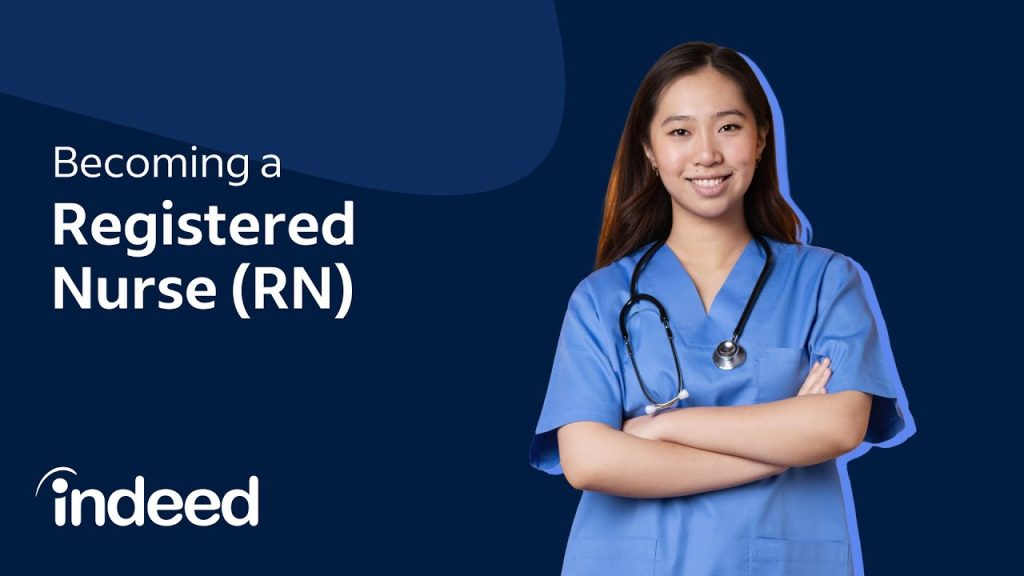You may be thinking that becoming a nurse requires years and years of schooling and education, and you’re not wrong. However, the journey to becoming a nurse is filled with various educational requirements that are designed to equip you with the necessary knowledge and skills to provide quality patient care.
From high school education to specialized master’s programs, the path to becoming a nurse offers a range of options that cater to different aspirations and career goals.
So, if you’ve ever wondered about the educational requirements for nursing, buckle up, because we’re about to take you on a journey through the various stages of nurse education that will leave you intrigued and eager to explore further.
High School Education
To become a nurse, you’ll need to meet certain education requirements, starting with completing your high school education. Obtaining a high school diploma or its equivalent is the first step towards pursuing a career in nursing. This foundational education provides you with the necessary knowledge and skills to succeed in further nursing studies.
High school education forms the basis for your future academic endeavors. It equips you with essential skills in subjects such as mathematics, science, and English, which are vital in understanding the principles of nursing. These subjects lay the groundwork for more advanced coursework in college or university.
Additionally, high school provides an opportunity to develop crucial skills like critical thinking, problem-solving, and effective communication. These skills are essential in the nursing profession, as nurses are often required to think on their feet, make quick decisions, and effectively communicate with patients, their families, and other healthcare professionals.
Moreover, during high school, you can explore healthcare-related extracurricular activities or volunteer opportunities that can give you a glimpse into the world of nursing. These experiences can help solidify your passion for nursing and provide valuable insights into the healthcare field.
Pre-Nursing Prerequisites
After completing your high school education, you must fulfill certain pre-nursing prerequisites to continue along the path to becoming a nurse. These prerequisites are essential in preparing you for the rigorous nursing program ahead. The specific requirements may vary depending on the nursing school you choose, but there are some common prerequisites that most programs require.
First, you’ll need to complete courses in science and math. This typically includes biology, chemistry, and anatomy and physiology. These courses provide you with a solid foundation in the sciences, which is crucial for understanding the human body and the principles of healthcare.
In addition to the science and math courses, you’ll also need to take general education classes. These classes cover a wide range of subjects such as English, psychology, and sociology. They help you develop critical thinking, communication, and interpersonal skills, which are vital for providing quality patient care.
Furthermore, many nursing programs require you to have clinical experience. This can be obtained through volunteering or working as a certified nursing assistant (CNA). Clinical experience allows you to gain firsthand knowledge of healthcare settings and develop essential skills in patient care.
Associate Degree in Nursing (ADN)
If you want to become a nurse, earning an Associate Degree in Nursing (ADN) is a popular and practical option. An ADN program typically takes about two to three years to complete and provides you with the necessary knowledge and skills to begin your nursing career. This degree is offered by many community colleges and technical schools, making it accessible to a wide range of individuals.
During your ADN program, you’ll study a variety of subjects, including anatomy, physiology, pharmacology, and nursing theory. You’ll also gain hands-on experience through clinical rotations in hospitals, clinics, and other healthcare settings. This combination of classroom learning and practical experience prepares you to provide safe and effective patient care.
One of the advantages of earning an ADN is that it allows you to enter the nursing workforce more quickly than other educational paths. After graduating, you’ll be eligible to take the National Council Licensure Examination for Registered Nurses (NCLEX-RN), which is required to become a licensed registered nurse (RN).
While an ADN can provide you with a solid foundation for a nursing career, it’s important to note that some healthcare organizations may prefer or require a Bachelor of Science in Nursing (BSN) for certain positions. However, many nurses with an ADN choose to pursue a BSN through a bridge program while working as a registered nurse.
Bachelor of Science in Nursing (BSN)
If you’re looking to further your nursing education beyond an Associate Degree in Nursing (ADN), the Bachelor of Science in Nursing (BSN) is a valuable option to consider. A BSN program typically takes four years to complete and provides a more comprehensive education compared to an ADN. It offers a broader range of courses that delve deeper into areas such as leadership, research, and community health. By pursuing a BSN, you’ll gain a stronger foundation in nursing theory and practice, allowing you to provide high-quality care to patients in a variety of healthcare settings.
One of the benefits of obtaining a BSN is the increased job opportunities it can provide. Many healthcare institutions prefer to hire nurses with a BSN because of the advanced knowledge and skills they possess. In fact, some hospitals have even made a BSN a requirement for certain positions. With a BSN, you may have a greater chance of securing a job in specialties like critical care, pediatrics, or oncology.
Furthermore, a BSN can open doors to advanced nursing roles and higher salaries. Nurses with a BSN are often eligible for promotions to positions such as nurse manager, nurse educator, or nurse researcher. These roles not only offer increased job satisfaction but also come with higher earning potential.
Master of Science in Nursing (MSN)
To advance your nursing career and gain expertise in specialized areas, consider pursuing a Master of Science in Nursing (MSN). An MSN degree is a postgraduate program that builds upon the knowledge and skills acquired during your Bachelor of Science in Nursing (BSN) program. This advanced degree opens up a wide range of career opportunities and allows you to take on leadership roles in healthcare settings.
The MSN curriculum focuses on developing advanced clinical skills, critical thinking abilities, and research competencies. It offers specialized tracks in various areas such as nurse practitioner, nurse educator, nurse administrator, and nurse informaticist. By choosing a specific track, you can deepen your knowledge and skills in a particular field of nursing.
One of the main benefits of pursuing an MSN degree is the increased earning potential. Nurses with an MSN degree often earn higher salaries compared to those with a BSN or an associate degree in nursing. Additionally, an MSN degree can provide you with the opportunity to advance into advanced practice nursing roles, which are in high demand and offer greater autonomy and responsibility.
Continuing Education and Specializations
As a nurse, you understand the importance of staying up-to-date with advanced nursing certifications, engaging in ongoing professional development, and exploring specialized nursing tracks.
These three points are crucial for expanding your knowledge, honing your skills, and staying competitive in the ever-evolving field of healthcare.
Advanced Nursing Certifications
Obtaining advanced nursing certifications through continuing education and specializations can greatly enhance your knowledge and skills in the field. These certifications are designed to provide nurses with the opportunity to deepen their understanding of specific areas within nursing practice. By pursuing advanced certifications, you can demonstrate your commitment to professional growth and development, as well as your expertise in a particular specialty or subspecialty.
Continuing education programs offer nurses the chance to stay up-to-date with the latest advancements in healthcare and evidence-based practices. These programs often focus on specialized areas such as critical care, pediatrics, or gerontology. By completing advanced certifications in these areas, you can expand your career options and increase your earning potential.
Specializations, on the other hand, allow nurses to develop a deep expertise in a specific area of nursing. These certifications typically require additional coursework, clinical experience, and sometimes even a formal examination. Some common specializations include nurse practitioner, nurse anesthetist, and nurse midwife. These certifications can open doors to advanced practice roles and leadership positions within the healthcare industry.
Ongoing Professional Development
Enhancing your knowledge and skills through ongoing professional development is essential for nurses to stay current in their practice and advance their careers.
Continuing education plays a crucial role in keeping up with the ever-changing healthcare landscape. By participating in workshops, seminars, and conferences, you can stay updated on the latest advancements and best practices in nursing. These opportunities allow you to expand your knowledge, develop new skills, and enhance your critical thinking abilities.
Additionally, ongoing professional development offers a chance to specialize in specific areas of nursing. This can be achieved through pursuing advanced certifications or obtaining additional qualifications in a particular field of interest. Specializations not only demonstrate your expertise but also open doors to new career opportunities and increased job satisfaction.
Specialized Nursing Tracks
To further advance your nursing career and stay up-to-date with the latest advancements in healthcare, consider exploring specialized nursing tracks through continuing education and specializations.
These specialized tracks provide you with the opportunity to deepen your knowledge and skills in specific areas of nursing practice. Whether you’re interested in becoming a nurse educator, a nurse researcher, or a nurse practitioner specializing in a particular field, there are various options available to suit your career goals.
Continuing education programs offer courses and workshops that focus on specific areas of nursing, allowing you to gain specialized knowledge and skills.
Specializations, on the other hand, involve obtaining additional certifications or advanced degrees in a specific area of nursing, such as critical care, pediatrics, or oncology.
Frequently Asked Questions
What Are the Specific High School Courses or Subjects That Are Recommended for Students Interested in Pursuing a Career in Nursing?
To pursue a career in nursing, it’s recommended to take high school courses in biology, chemistry, and psychology. These subjects provide a strong foundation for understanding the human body and mind.
Are There Any Alternative Pathways or Programs Available for Individuals Who Didn’t Complete the Necessary High School Prerequisites for Nursing Education?
If you didn’t complete the necessary high school prerequisites for nursing education, there are alternative pathways or programs available. These options can help you fulfill the requirements and pursue a career in nursing.
What Is the Typical Duration of an Associate Degree in Nursing (Adn) Program, and How Does It Differ From a Bachelor of Science in Nursing (Bsn) Program?
The typical duration of an ADN program is usually 2-3 years, while a BSN program takes around 4 years. ADN focuses more on clinical skills, while BSN offers a broader education and more leadership opportunities.
Can a Nurse With an ADN Pursue a Master of Science in Nursing (Msn) Degree, or Is a BSN a Prerequisite for Advanced Nursing Education?
Yes, you can pursue a Master of Science in Nursing (MSN) degree with an Associate Degree in Nursing (ADN). A Bachelor of Science in Nursing (BSN) is not always a prerequisite for advanced nursing education.
What Are Some of the Specialized Areas or Fields in Nursing That Nurses Can Pursue Through Continuing Education or Specialized Training Programs?
There are many specialized areas in nursing that you can pursue through continuing education or specialized training programs. These include critical care, pediatrics, oncology, mental health, and many more.
Conclusion
So, if you’re looking to become a nurse, here’s what you need to do.
First, focus on getting a solid high school education.
Then, make sure you meet the pre-nursing prerequisites before applying to nursing school.
Once you’re in, you can choose between an ADN or a BSN, depending on your career goals.
If you want to advance further, consider pursuing an MSN.
And remember, learning doesn’t stop after graduation – continuing education and specializations will help you stay current in the field.
Good luck on your nursing journey!


